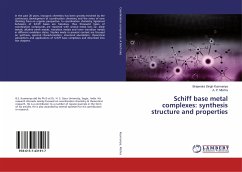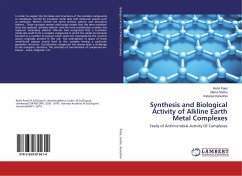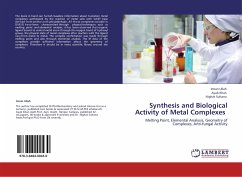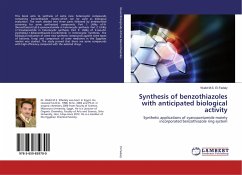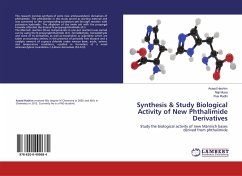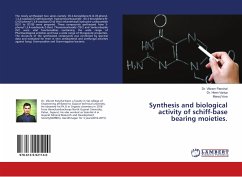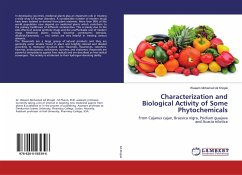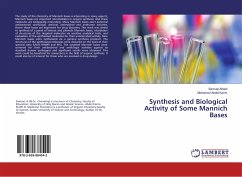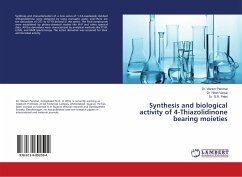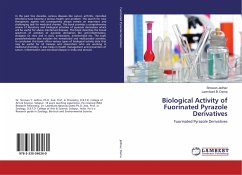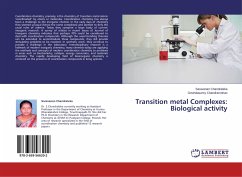
Transition metal Complexes: Biological activity
Versandkostenfrei!
Versandfertig in 6-10 Tagen
24,99 €
inkl. MwSt.

PAYBACK Punkte
12 °P sammeln!
Coordination chemistry, precisely, is the chemistry of transition metal atoms "coordinated" by atoms or molecules. Coordination chemistry has always been a challenge to the inorganic chemist. In the early days of chemistry they seemed unusual (hence the name complexes) and seemed to defy the usual rules of valence. Today they comprise a large body of current inorganic research. A survey of articles in recent issues of Journal of Inorganic chemistry indicates that perhaps 70% could be considered to deal with coordination compounds. Although the usual bonding theories can be extended to accommod...
Coordination chemistry, precisely, is the chemistry of transition metal atoms "coordinated" by atoms or molecules. Coordination chemistry has always been a challenge to the inorganic chemist. In the early days of chemistry they seemed unusual (hence the name complexes) and seemed to defy the usual rules of valence. Today they comprise a large body of current inorganic research. A survey of articles in recent issues of Journal of Inorganic chemistry indicates that perhaps 70% could be considered to deal with coordination compounds. Although the usual bonding theories can be extended to accommodate these compounds, they still provide stimulating problems to be resolved. In synthetic work, they continue to provide a challenge in the laboratory. Interdisciplinary research is a hallmark of modern inorganic chemistry, many chemists today are applying the methods and concepts of modern coordination chemistry to problems in areas such as biochemistry, catalysis, energy conversion, and materials chemistry. The rapidly developing field of bioinorganic chemistry is centered on the presence of coordination compounds in living systems.



